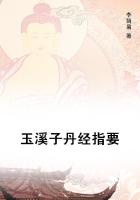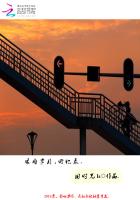And how has it fared with "Physick" and Anatomy? Have the anatomist, the physiologist, or the physician, whose business it has been to devote themselves assiduously to that eminently practical and direct end, the alleviation of the sufferings of mankind,--have they been able to confine their vision more absolutely to the strictly useful? I fear they are the worst offenders of all. For if the astronomer has set before us the infinite magnitude of space, and the practical eternity of the duration of the universe; if the physical and chemical philosophers have demonstrated the infinite minuteness of its constituent parts, and the practical eternity of matter and of force; and if both have alike proclaimed the universality of a definite and predicable order and succession of events, the workers in biology have not only accepted all these, but have added more startling theses of their own. For, as the astronomers discover in the earth no centre of the universe, but an eccentric [48] speck, so the naturalists find man to be no centre of the living world, but one amidst endless modifications of life; and as the astronomers observe the mark of practically endless time set upon the arrangements of the solar system so the student of life finds the records of ancient forms of existence peopling the world for ages, which, in relation to human experience, are infinite.
Furthermore, the physiologist finds life to be as dependent for its manifestation of particular molecular arrangements as any physical or chemical phenomenon; and wherever he extends his researches, fixed order and unchanging causation reveal themselves, as plainly as in the rest of Nature.
Nor can I find that any other fate has awaited the germ of Religion. Arising, like all other kinds of knowledge, out of the action and interaction of man's mind, with that which is not man's mind, it has taken the intellectual coverings of Fetishism or Polytheism; of Theism or Atheism; of Superstition or Rationalism.
With these, and their relative merits and demerits, I have nothing to do; but this it is needful for my purpose to say, that if the religion of the present differs from that of the past, it is because the theology of the present has become more scientific than that of the past; because it has not only renounced idols of wood and idols of stone, but begins to see the necessity of breaking in pieces the idols built up of books and traditions and fine-spun ecclesiastical cobwebs: and of cherishing the noblest and most human of man's emotions, by worship "for the most part of the silent sort" at the Altar of the Unknown.
Such are a few of the new conceptions implanted in our minds by the improvement of natural knowledge. Men have acquired the ideas of the practically infinite extent of the universe and of its practical eternity; they are familiar with the conception that our earth is but an infinitesimal fragment of that part of the universe which can be seen; and that, nevertheless, its duration is, as compared with our standards of time, infinite. They have further acquired the idea that man is but one of innumerable forms of life now existing on the globe, and that the present existences are but the last of an immeasurable series of predecessors. Moreover, every step they have made in natural knowledge has tended to extend and rivet in their minds the conception of a definite order of the universe--which is embodied in what are called, by an unhappy metaphor, the laws of Nature--and to narrow the range and loosen the force of men's belief in spontaneity, or in changes other than such as arise out of that definite order itself.
Whether these ideas are well or ill founded is not the question.
No one can deny that they exist, and have been the inevitable outgrowth of the improvement of natural knowledge. And if so, it cannot be doubted that they are changing the form of men's most cherished and most important convictions.
And as regards the second point--the extent to which the improvement of natural knowledge has remodelled and altered what may be termed the intellectual ethics of men,--what are among the moral convictions most fondly held by barbarous and semi-barbarous people?
They are the convictions that authority is the soundest basis of belief; that merit attaches to a readiness to believe; that the doubting disposition is a bad one, and scepticism a sin; that when good authority has pronounced what is to be believed, and faith has accepted it, reason has no further duty. There are many excellent persons who yet hold by these principles, and it is not my present business, or intention, to discuss their views. All I wish to bring clearly before your minds is the unquestionable fact, that the improvement of natural knowledge is effected by methods which directly give the lie to all these convictions, and assume the exact reverse of each to be true.
The improver of natural knowledge absolutely refuses to acknowledge authority, as such. For him, scepticism is the highest of duties;blind faith the one unpardonable sin. And it cannot be otherwise, for every great advance in natural knowledge has involved the absolute rejection of authority, the cherishing of the keenest scepticism, the annihilation of the spirit of blind faith; and the most ardent votary of science holds his firmest convictions, not because the men he most venerates hold them; not because their verity is testified by portents and wonders; but because his experience teaches him that whenever he chooses to bring these convictions into contact with their primary source, Nature--whenever he thinks fit to test them by appealing to experiment and to observation--Nature will confirm them. The man of science has learned to believe in justification, not by faith, but by verification.
Thus, without for a moment pretending to despise the practical results of the improvement of natural knowledge, and its beneficial influence on material civilisation, it must, I think, be admitted that the great ideas, some of which I have indicated, and the ethical spirit which I have endeavoured to sketch, in the few moments which remained at my disposal, constitute the real and permanent significance of natural knowledge.
If these ideas be destined, as I believe they are, to be more and more firmly established as the world grows older; if that spirit be fated, as I believe it is, to extend itself into all departments of human thought, and to become co-extensive with the range of knowledge; if, as our race approaches its maturity, it discovers, as I believe it will, that there is but one kind of knowledge and but one method of acquiring it; then we, who are still children, may justly feel it our highest duty to recognise the advisableness of improving natural knowledge, and so to aid ourselves and our successors in our course towards the noble goal which lies before mankind.

